
Frontiers is the eighth studio album by the American rock band Journey, released in February 1983, by Columbia Records. This was the band's last album to feature bassist Ross Valory until 1996's Trial by Fire.
Brave Belt was a Canadian rock band from Winnipeg, Manitoba originally consisting of Randy Bachman (guitar/vocals), his former Guess Who bandmate, Chad Allan (vocals/keyboards), and Randy's brother Robbie (drums). Randy also provided bass tracks for the recording of the band's first album, Brave Belt. C. F. "Fred" Turner was added shortly after as bassist for the supporting concerts.

Spirit was an American rock band founded in 1967 and based in Los Angeles. Their most commercially successful single in the United States was "I Got a Line on You". They were also known for their albums, including their self-titled debut album, The Family That Plays Together, Clear, and Twelve Dreams of Dr. Sardonicus.

A New World Record is the sixth studio album by Electric Light Orchestra (ELO). It was released on 15 October 1976, by United Artists Records in the United States and on 19 November 1976, by Jet Records in the United Kingdom. A New World Record marked ELO's shift towards shorter pop songs, a trend which would continue across their career.
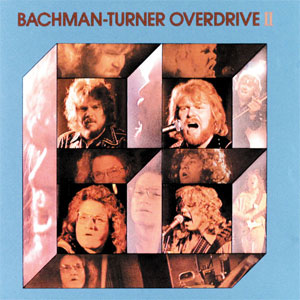
Bachman–Turner Overdrive II is the second album by Canadian rock band Bachman–Turner Overdrive, released in 1973. The album reached #4 in the US and #6 in Canada.

Eagles Live is the first live album by the American rock band Eagles, a two-LP set released on November 7, 1980. Although the Eagles were already in the process of breaking up, the band owed Elektra/Asylum Records one more album and fulfilled that contractual obligation with a release of performances from the Hotel California and The Long Run tours.

Bachman–Turner Overdrive is the self-titled debut studio album by Canadian rock band Bachman–Turner Overdrive, released in 1973. It was originally to be titled Brave Belt III, following the Brave Belt II album, made by the previous line-up of the group, called Brave Belt.

Head On is the fifth studio album by Canadian rock band Bachman–Turner Overdrive, released in December 1975. On the original vinyl release, the outer album cover expanded into a 24x24 inch poster featuring all four members of the band at that time. It was re-released in 2003 on Repertoire Records in conjunction with Mercury Records. The re-release featured the bonus track "Down to the Line", which was released as a single in 1975 but not included on the vinyl nor the original Mercury CD release of Head On.

One More Song is the second solo studio album by former Eagles bassist Randy Meisner. Released in October 1980 by Epic Records in the United States, and in the United Kingdom. The album is to date Meisner's most successful album as a solo artist, peaking at number 50, on the US Billboard 200 chart.

American Woman is the sixth studio album by Canadian rock band the Guess Who, released in January 1970. It was the last to feature lead guitarist Randy Bachman until a reformation effort in 1983. The album was one of their most successful releases, receiving Gold certification in the United States.

Twelve Dreams of Dr. Sardonicus is the fourth album by the American rock band Spirit. It was produced by David Briggs, who is best known for his work with Neil Young. The original LP was released in November 1970 by Epic. The band's lowest charting album to that point, it peaked at #63 on the Billboard 200 in February 1971, spending only fourteen weeks on the chart. However, it sold well as a catalog item and became the band's only album to ultimately attain a RIAA gold certification in the U.S., achieving that status in 1976. On the Canadian RPM Magazine Top 100 charts, the album reached #49 and was in the top 100 for 10 weeks.
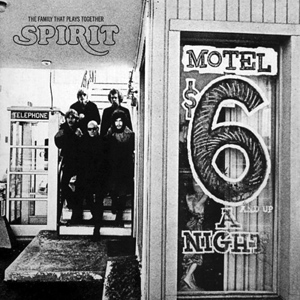
The Family That Plays Together is the second album by the American rock band Spirit. It was released by Ode Records in December 1968. It was voted number 575 in Colin Larkin's All Time Top 1000 Albums 3rd Edition (2000).
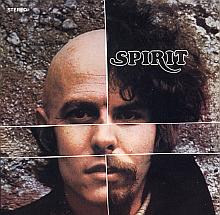
Spirit is the debut studio album by American rock band Spirit, released on January 22, 1968 by Ode Records. The album was commercially successful, spending more than six months on the Billboard album charts, peaking at #31. It was voted number 658 in Colin Larkin's All Time Top 1000 Albums 3rd Edition (2000).
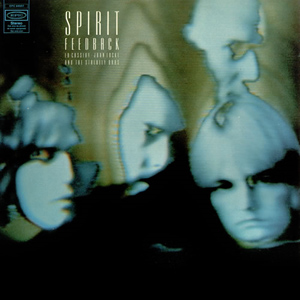
Feedback is the fifth album by the rock band Spirit. Released in 1972, it was the first Spirit album without original members Jay Ferguson and Mark Andes, and it was also the only Spirit album that did not feature Randy California performing on it, as California had left the group to pursue a solo career (Kapt. Kopter and the Twirly Birds).
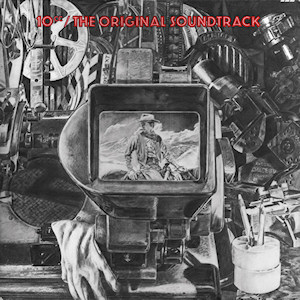
The Original Soundtrack is the third studio album by the English rock band 10cc. It was released in 1975 and peaked at number three on the UK Albums Chart. The Original Soundtrack includes the singles "Life Is a Minestrone", and "I'm Not in Love", the band's most popular song.
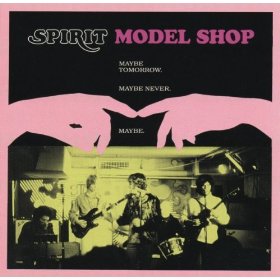
Model Shop is a 2005 album by the Los Angeles group, Spirit, which collects the material they recorded in 1968, for the soundtrack to Jacques Demy's film Model Shop. Chronologically, the album's material falls in between their second and third albums, The Family That Plays Together (1968) and Clear (1969) respectively.

The Roaring Silence is the seventh studio album by English rock band Manfred Mann's Earth Band. It was released on 27 August 1976, by Bronze Records in the UK and by Warner Bros. Records in the US. Like other Earth Band albums, this includes material by other composers. "Blinded by the Light", which reached number one on the Billboard Hot 100, is a cover version of a song by Bruce Springsteen; "Questions" is based on the main theme of Franz Schubert's Impromptu in G flat Major (1827); "Starbird" takes its theme from Igor Stravinsky's ballet The Firebird (1910); and "The Road to Babylon" is based on the canon "By the Waters of Babylon" by Philip Hayes. Lyrics and melody of the intro of "The Road to Babylon" is taken from the song "Babylon" from Don McLean's second album American Pie, released in 1971.

Wheatfield Soul is the fourth studio album by the Canadian rock band the Guess Who, released in March 1969. Their first RCA Records release, the album is also notable for being the first full-length Guess Who album to feature Burton Cummings exclusively on lead vocals, without original lead singer Chad Allan. Featuring the US top 10 hit "These Eyes", it marked the beginning of the band's international success.
"Feelin' Alright?", also known as "Feeling Alright", is a song written by Dave Mason of the English rock band Traffic for their eponymous 1968 album Traffic. It was also released as a single, and failed to chart on both the UK Singles Chart and the US Billboard Hot 100, but it did reach a bubbling under position of #123 on the Bubbling Under Hot 100. Joe Cocker performed a more popular rendition of the song on his 1969 album With a Little Help from My Friends, that did chart in the U.S. Both Traffic's and Cocker's versions appear in the 2012 movie Flight. The song was also featured in the 2000 film Duets, sung by Huey Lewis.

The Best of The Guess Who is the fourth compilation album by the Canadian group The Guess Who. It was originally released by RCA Records in April 1971 and contains recordings made between 1968 and 1970. The album reached number 12 on the Billboard top LPs chart in the United States.


















